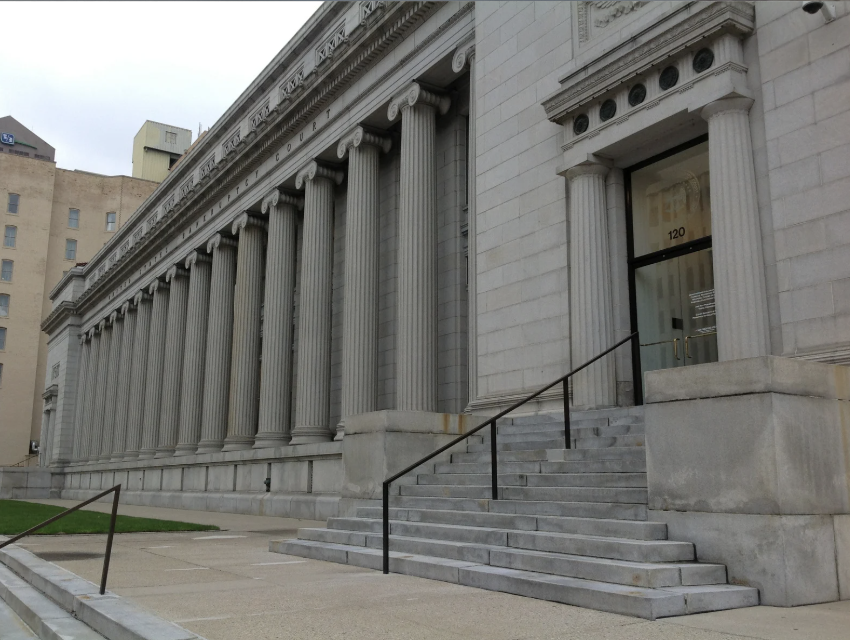Federal Court Ruling Invalidates Key Provision of Texas Senate Bill 1
In a significant judicial development, a federal district court has ruled against a critical provision of Texas Senate Bill 1 (SB1), a noteworthy statute that has faced extensive criticism since its inception. This ruling is seen as a landmark victory for advocates of voting rights, who have long argued that the bill imposes barriers disproportionately affecting minority and marginalized voters. The court’s findings underscore the ongoing legal and political battles surrounding voting legislation in the United States, particularly in the context of the upcoming 2024 presidential election.
The Provisions of Senate Bill 1
Passed in 2021, Texas Senate Bill 1 aimed to enhance election security through several controversial measures. Among these were stricter voter ID requirements, a reduction in early voting hours, and limits on ballot drop-off locations. The premise underlying these changes was to ensure the integrity of elections; however, critics quickly pointed out that such measures have the potential to disenfranchise key voter demographics, particularly those in historically marginalized communities.
Judicial Findings Against SB1
The federal district court’s ruling specifically targeted the provision that mandated voters to present an exact match of their personal identification details as stated on their voter registration and mail-in ballot applications. The judge’s analysis revealed that this requirement disproportionately impacted elderly citizens, individuals with disabilities, and non-English-speaking voters. This outcome highlighted the unnecessary obstacles created by the law, which could deter eligible individuals from participating in elections.
Judge Sandoval’s Opinion
Judge Maria Sandoval, who presided over the case, emphasized the importance of accessibility to the voting process in her opinion. She stated, “Democracy thrives when barriers to participation are removed, not erected.” This statement encapsulates the core argument of voting rights advocates, asserting that laws imposing stringent requirements could violate the fundamental democratic principle of ensuring every eligible citizen’s right to vote.
Reactions from Texas Officials and Advocates
In response to the ruling, Texas officials, including Governor Greg Abbott, expressed their disappointment and announced plans to appeal the court’s decision. Abbott framed SB1 as a necessary measure aimed at maintaining election integrity, arguing that the ruling undermines efforts to secure fair and transparent voting practices. Similarly, while the state plans to push back against the court’s findings, voting rights organizations celebrated the ruling as a pivotal point in safeguarding electoral access.
The Stakes Ahead: 2024 Presidential Election
The timing of this decision could not be more crucial as the nation gears up for the 2024 presidential election. Legal experts suggest that the ongoing litigation over SB1 may escalate to the U.S. Supreme Court, where recent decisions have displayed a conservative inclination in matters relating to election law. This potential trajectory raises questions about how voting rights will be interpreted and protected in the future, particularly against the backdrop of heightened political polarization.
The Broader Debate: Election Security vs. Voter Accessibility
The ruling has resurrected important discussions regarding the balance between ensuring election security and maintaining voter accessibility—a dynamic that is likely to shape political conversations leading to the elections. Advocates for voting rights contend that robust safeguards should not come at the expense of disenfranchising vulnerable populations. Conversely, proponents of stricter voting laws argue that such measures are essential for preserving electoral integrity and public trust in the democratic process.
Conclusion
The federal court’s decision to invalidate a significant component of Texas Senate Bill 1 marks a crucial moment in the ongoing struggle for voting rights in the United States. As preparation for the 2024 presidential election intensifies, the implications of this ruling could extend far beyond Texas, potentially influencing similar legislative battles in other states. With the appeal process likely to engage higher courts, the discourse surrounding voting rights, election security, and accessibility is poised to become even more pronounced in the months ahead.
FAQs
What is Texas Senate Bill 1 (SB1)?
Texas Senate Bill 1, passed in 2021, introduced several measures aimed at enhancing election security, including stricter voter ID requirements, limitations on early voting hours, and regulations concerning ballot drop-off locations.
What was the court’s ruling regarding SB1?
The federal district court ruled against a provision requiring voters to provide an exact match of personal identification information, citing that it disproportionately affected vulnerable populations such as elderly voters and those with disabilities.
What are the implications of this ruling?
This ruling is seen as a victory for voting rights advocates and raises significant questions regarding the balance between election security and voter accessibility as the country approaches the 2024 presidential election.
Are there plans to appeal the ruling?
Yes, Texas officials, including Governor Greg Abbott, have announced intentions to appeal the court’s decision, arguing for the necessity of SB1 in maintaining election integrity.
How might this ruling affect future voting legislation?
The ruling could have wide-reaching implications, serving as a precedent for similar legal challenges in other states and shaping the national conversation about voting rights and election laws moving forward.

